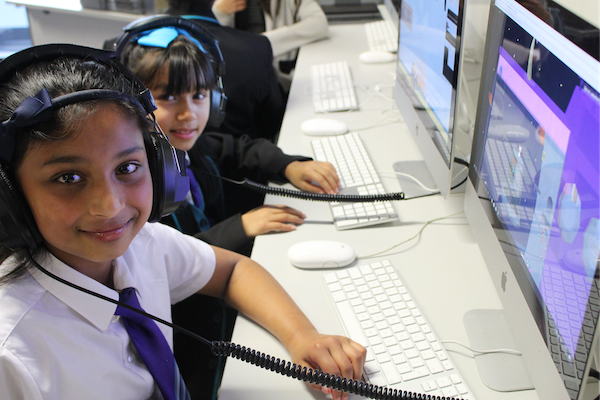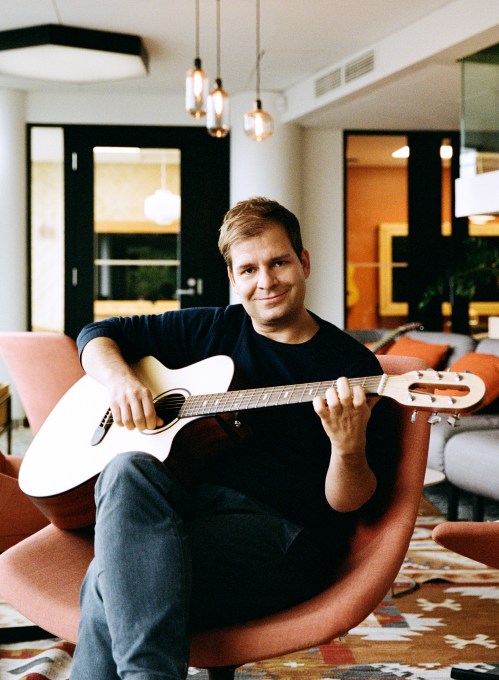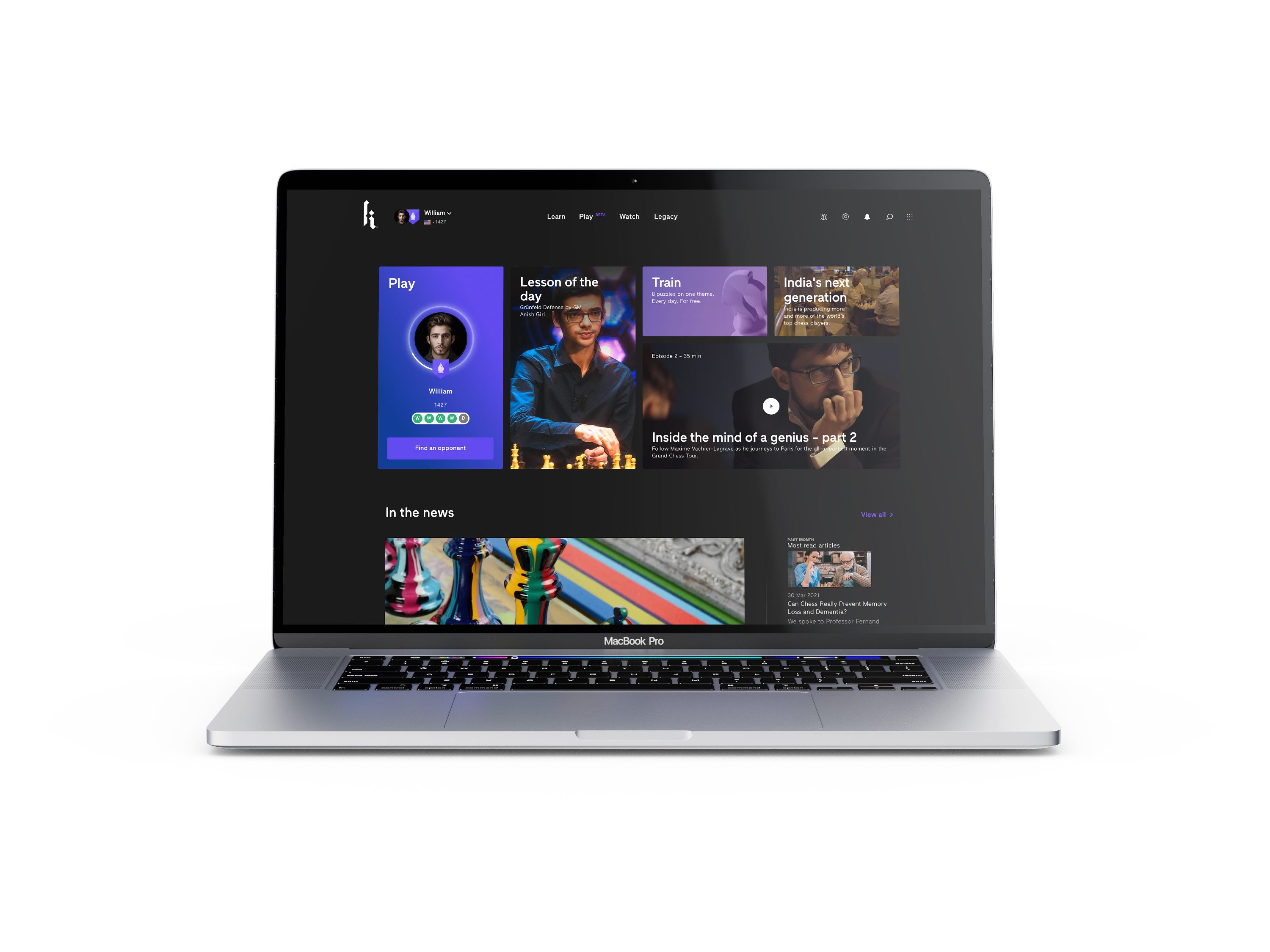YouTube, Snapchat, Twitter, TikTok and Facebook’s Instagram have upended the film and TV industries, with a new wave of cinematographers, directors and actors leveraging innovations in technology to create new work and connect directly with billions of consumers to see it. Today, a startup is announcing some funding as it looks to make a similar impact in the world of music.
Rapchat, an app that lets people create music tracks — raps, as its names suggest, or something else — using a platform that crowdsources beats and lets people put vocals on top of them, has raised $2.3 million.
Co-led by Sony Music Entertainment and NYC VC firm Adjacent, this is an extension to Rapchat’s seed round of $1.7 million back in 2018, and CEO and co-founder Seth Miller tells me it’s coming as the startup is getting ready for a bigger Series A.
With no connection to Snapchat — not now at least, except that founders Seth Miller and Pat Gibson did think it was a funny pun at the time that they were first conceiving of the company as a side hustle while still in university in 2015 — Rapchat has already gone quite some way in scaling.
The company today has some 7 million registered users, and at the moment some 250,000 songs are being created around a catalog of about 100,000 beats by 500,000 active users on the platform each month. Engagement is hovering right now at 35 minutes per day on average, a mix not just of people making tunes, but through the beginnings of a social graph: people coming onto the app to discover and share those tracks.
Rapchat plans to use the funding to continue expanding the scope of what you can create on its platform, including growing the prize pools for Rapchat’s ‘Challenges’ competition series; expand to have more artists, producers, and industry executives on the platform for mentoring; and to extend that platform’s reach to integrate more deeply with the likes of TikTok, Snapchat, Spotify and Apple Music — platforms where creators are already making a lot of content, and where music is figuring strongly in that effort.
Rapchat’s growth not only speaks to how the startup has pulled off its ambition to make it easier to make music, but it also speaks to an appetite, an itch, in the creator economy: there is a big wide world of music-making out there, and more want to see if they can strike the right note.
Rapchat is definitely not the only, nor the first, company to think of how to address music creators within the bigger creator economy.
Another app called Voisey had conceived of a similar idea but focused primarily on letting people create and record shorter clips rather than full music tracks before sharing them to other platforms. It has not quite come a household name, but it did have some small success in bringing attention to new artists, and interestingly, it was quietly acquired by Snap last year (and for now Snap’s kept Voisey’s app up).
TikTok’s parent ByteDance has also made an acquisition of another music creation app, Jukedeck. As with Snap’s acquisition, so far we’re not fully clear on how and where that acquisition is going, but we’ve heard through the grapevine that TikTok is working on a new music service that sounds like it might let more content get plugged into TikTok’s music layer, so perhaps watch this space.
And in perhaps the most trend-endorsing act of all, Rapchat has been cloned — by Facebook, no less. NPE, the social networking behemoth’s in-house skunkworks team, in February rolled out BARS (all caps! stand out!) — which is, yes — an app on which you can create your own rap music.
Miller, at least for now, is about as laid back as you could be, considering all of the above, confident that at least for now, he is very happy with the engagement Rapchat is seeing, including around tests it has been running around offering new premium features — the app is free to use right now, but it has plans to offer creators more production tools and better ways of sharing their work and helping build a business out of it. Key to that will be never demanding licensing fees on music: creators keep the royalties, with Rapchat’s value lying in helping them make and track how that music gets used with the metadata that it holds on those tracks.
Some of the low-key approach might well come from the fact that Rapchat and its founders are somewhat outside of the startup fray. The idea for the app first came up in 2013, Miller said, when he and Gibson were students at Ohio University in Columbus.
“We were coming of age when everyone in college was using apps like Snapchat and Instagram,” he said. “We loved them for video, but saw there was nothing like them for creating music. So we pitched the idea during a Startup Weekend competition: snapping like Snapchat but for rap. Someone said, ‘Rapchat’ and we liked it.”
They went full-time on the idea in 2015 when they got into 500 Startups with the app, but even so it’s taken them years to build up the business, get attention from investors and raise money. Why? Partly because music is hard, and frankly the main game in town for years has been streaming services, rather than creation services.
Miller and Gibson persisted: “I knew that this market was huge. It just made so much sense to me,” he said. “The advent of the mobile devices the moment that apps like Instagram, VSCO and Snapchat have turned people into photographers and video makers, and Substack is turning people into writers.” And now Rapchat wants to tap the world for rappers.
“Rapchat has created a music studio that fits into your pocket,” said Nico Wittenborn, lead Investor at venture capital firm Adjacent, in a statement. “It decreases the friction of creativity by allowing anyone, anywhere in the world to record and publish music straight from their phones. This mobile-enabled democratization of technology is what Adjacent is all about, and I am super excited to support the team in building out this next-level music platform.”
from TechCrunch https://ift.tt/3u8R12j
via IFTTT




